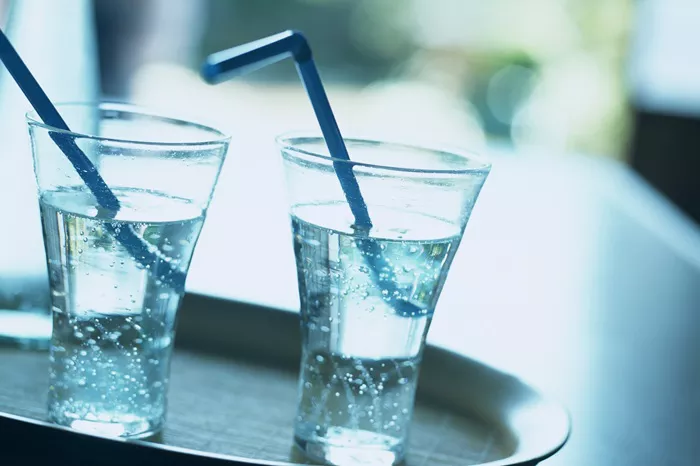Breastfeeding is an essential part of infant care, providing the necessary nutrients and antibodies for a baby’s development. Nursing mothers often wonder how their diet affects their breast milk and, ultimately, their baby’s health. One common question is whether carbonation, found in sodas and sparkling water, affects breast milk. This article will explore the effects of carbonation on breast milk and provide evidence-based information to help nursing mothers make informed decisions.
Understanding Breast Milk Composition
Breast milk is a complex fluid composed of water, carbohydrates, fats, proteins, vitamins, and minerals. It also contains antibodies and other immune-boosting components that protect the infant from infections. The composition of breast milk can be influenced by various factors, including the mother’s diet, hydration levels, and overall health.
Nutritional Components of Breast Milk
Breast milk is uniquely tailored to meet the nutritional needs of infants. Key components include:
Water: Makes up about 88% of breast milk and is essential for keeping the baby hydrated.
Carbohydrates: Mainly lactose, providing energy and promoting healthy gut bacteria.
Fats: Crucial for brain development and energy.
Proteins: Including casein and whey, important for growth and immune function.
Vitamins and Minerals: Vital for overall development and health.
Carbonation in Beverages
Carbonation refers to the presence of carbon dioxide gas dissolved in a liquid, creating bubbles and fizz. Common carbonated beverages include:
Sodas
Sparkling water
Some fruit juices
Carbonated energy drinks
Ingredients in Carbonated Drinks
Apart from carbonation, these drinks often contain other ingredients such as:
Sugars or artificial sweeteners
Caffeine
Preservatives
Artificial flavors and colors
How Does Carbonation Work?
Carbon dioxide gas is pressurized and dissolved in the liquid, which releases bubbles when the pressure is released (e.g., when opening a bottle or can). This process creates the familiar fizz and can alter the taste and texture of the drink.
Does Carbonation Enter Breast Milk?
One primary concern for nursing mothers is whether the carbonation itself can enter breast milk and affect the baby. However, the carbon dioxide gas in carbonated drinks does not pass into breast milk. Once consumed, the gas is absorbed into the bloodstream and expelled through the lungs as you breathe out.
Impact of Other Ingredients in Carbonated Beverages
While carbonation itself does not affect breast milk, other ingredients in carbonated drinks might. Here are some considerations:
Sugars and Artificial Sweeteners
High Sugar Content: Excessive sugar intake can lead to weight gain and may affect the mother’s overall health. While sugar does not directly transfer into breast milk, high consumption can impact the mother’s energy levels and mood.
Artificial Sweeteners: Some studies suggest that artificial sweeteners can pass into breast milk in small amounts. However, the long-term effects on infants are not well understood.
Caffeine
Many carbonated drinks, especially sodas and energy drinks, contain caffeine. Caffeine can pass into breast milk and may affect the baby, leading to irritability and sleep disturbances. Nursing mothers are generally advised to limit their caffeine intake to avoid these potential issues.
Preservatives and Artificial Additives
Preservatives and artificial additives in carbonated drinks can sometimes cause adverse reactions in sensitive individuals. Although these substances are present in small amounts, it’s essential to consider their potential impact on both the mother and the baby.
Hydration and Breast Milk Production
Hydration is crucial for maintaining an adequate milk supply. While carbonated beverages can contribute to overall fluid intake, they should not replace water as the primary source of hydration. Some carbonated drinks, particularly those with caffeine, can have a diuretic effect, potentially leading to dehydration if consumed in excess.
SEE ALSO: What Can I Drink to Stop Breast Milk?
Potential Discomfort from Carbonation
Gastrointestinal Issues
Carbonated beverages can cause bloating and gas due to the release of carbon dioxide gas in the digestive system. While this does not directly affect breast milk, it can lead to discomfort for the nursing mother.
Acid Reflux
Some nursing mothers may experience acid reflux or heartburn from consuming carbonated drinks. This discomfort can indirectly impact breastfeeding by causing the mother to feel less comfortable during feeding sessions.
Healthy Alternatives to Carbonated Beverages
Nursing mothers looking to stay hydrated and healthy might consider the following alternatives to carbonated drinks:
Water
Plain Water: The best choice for hydration.
Infused Water: Adding fruits, herbs, or cucumber slices can make water more appealing without added sugars or caffeine.
Herbal Teas
Non-Caffeinated Options: Herbal teas such as chamomile, peppermint, and rooibos can be soothing and hydrating.
Fresh Juices
Homemade Juices: Freshly squeezed fruit and vegetable juices can provide vitamins and hydration without the added sugars and preservatives found in store-bought options.
Tips for a Healthy Breastfeeding Diet
Maintaining a balanced diet is crucial for nursing mothers. Here are some tips to ensure both mother and baby receive optimal nutrition:
Balanced Meals
Include All Food Groups: Ensure meals contain a mix of carbohydrates, proteins, fats, and plenty of fruits and vegetables.
Healthy Snacks: Keep healthy snacks like nuts, yogurt, and fruit on hand.
Stay Hydrated
Drink Plenty of Water: Aim for at least 8-10 glasses of water a day.
Limit Caffeine: Reduce intake of caffeinated beverages to avoid potential sleep disturbances for both mother and baby.
Monitor Baby’s Reaction
Observe Changes: Pay attention to any changes in the baby’s behavior or digestion that might be linked to the mother’s diet.
Consult Healthcare Providers: If there are concerns about how diet affects breastfeeding, consult a healthcare provider or lactation consultant for personalized advice.
Conclusion
In summary, carbonation itself does not affect breast milk. The carbon dioxide gas from carbonated beverages does not transfer into breast milk and is expelled from the mother’s body. However, other ingredients in carbonated drinks, such as sugars, artificial sweeteners, caffeine, and preservatives, can have potential impacts. Nursing mothers should be mindful of their overall diet and hydration, opting for healthy alternatives to carbonated beverages when possible. By maintaining a balanced diet and staying hydrated, mothers can ensure they provide the best possible nutrition for their babies while taking care of their own health.


